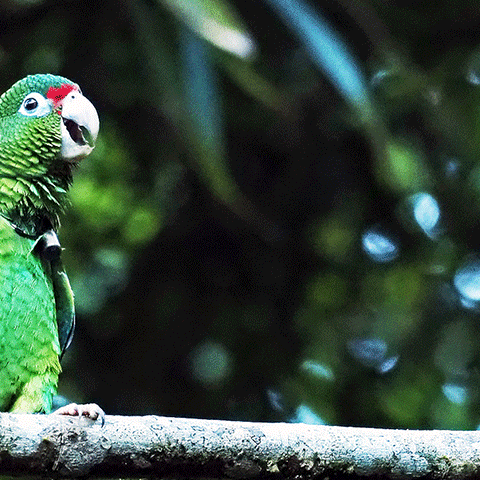The first Caribbean Joint Chiefs’ project was a reforestation project begun in Dec. 2017 in the wake of the devastation wreaked by hurricanes Irma & María. The project established biological corridors and restored ecosystem functionality post-hurricane in the central mountains of western Puerto Rico
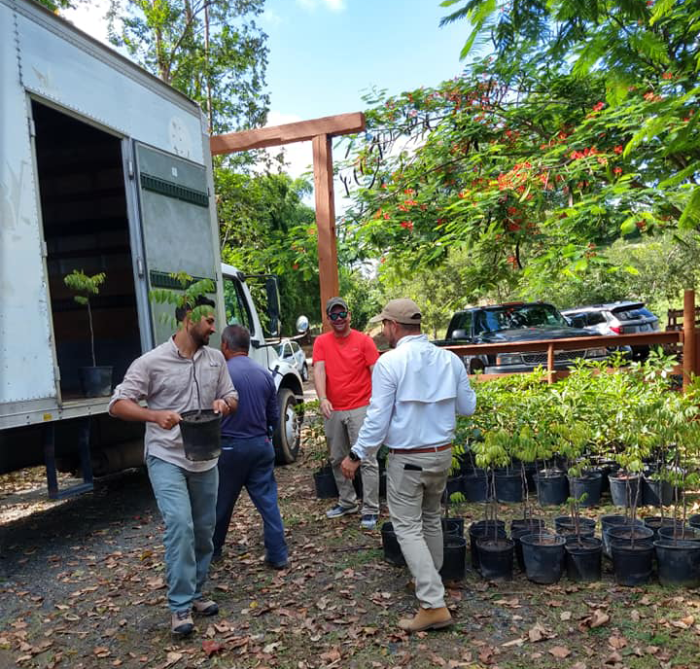
The Caribbean Area's first JCI project completed its three-year project period in December 2020. Initiative priorities were to:
- Reduce and mitigate wildfire threats to communities and landowners;
- Protect water quality and supply for communities and industry; and
- Improve habitat quality for at-risk or ecosystem surrogate species.
The initiative focused on establishing biological corridors and restoring ecosystem functionality post-hurricane in the central mountain range of western Puerto Rico. The project area included the Río Grande de Añasco, Río Guanajibo, Río Culebrinas, Río Guajataca, Río Camuy and Río Grande de Arecibo watersheds. NRCS worked with the US Forest Service and US Fish & Wildlife Service (FWS) along with 10 other partners to reduce soil erosion, improve water quality and soil health, mitigate wildfire threats, and improve habitat quality for at-risk species. The NRCS portion of the project allocated financial and technical assistance to eligible land and farmers from the Environmental Quality Incentives Program (EQIP) to establish selected conservation practices on their land. Targeted practices included: multi-story cropping, silvopasture, tree/ shrub establishment, fire breaks, hedgerow planting, and windbreak/ shelterbelt establishment.
Accomplishments:
- 38 farms under NRCS conservation contracts (FY 18, 19 & 20) representing over 2,915 acres with restoration activities;
- 13 Stewardship Management Plans completed by Cafiesencia (subcontracted by SWCD and the US Forest Service), and 27 planned;
- Over 30,000 native trees propagated and 8,582 native trees delivered and planted under the Initiative (by Protectores de Cuencas, PDC, subcontracted by SWCD and US Forest Service; and by Envirosurvey under cooperative agreement with NRCS). An additional 10,000 native trees propagated in FY 2021 & 2022;
- 3 populations of 170 individuals of the endangered Stahlia monosperma tree species established on private lands;
- Completed plans for monitoring project implementation on 38 farms for three years. Monitoring began in March 2021 by Para La Naturaleza (subcontracted by SWCD and US Forest Service)
- Continued receipt of technical assistance from US Fish & Wildlife Service (FWS) and PR DNER.
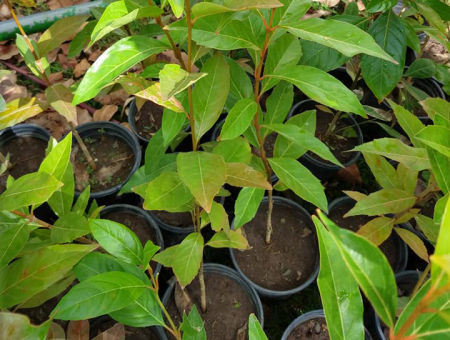
Delivered Tree Species
Tree species distributed through the initiative:
- Andira inermes (Moca or Dog almond)
- Bourreria succulenta (Palo de vaca; Pigeon berry)
- Bucida buceras (Úcar, gre-gre, black olive)
- Busera cimaruba (Almácigo, turpentine tree)
- Calophyllum antillanum (María, Maria galba)
- Clusia rosea (Cupey, autograph tree)
- Cordia alliodora (Cápa Prieto, Spanish elm)
- Cordia dentada (white manjack)
- Guazuma ulmifolia (Guácima; Jacko kallaloo)
- Inga laurina (Guáma; Sweet pea)
- Inga vera (Guába; River koko)
- Pithecellobium arboreum (Cojoba; Wild tamarind)
- Roystonea borinquena (Palma real; Puerto Rican royal palm)
- Tabebuia heterophylla (Roble blanco, pink cedar)
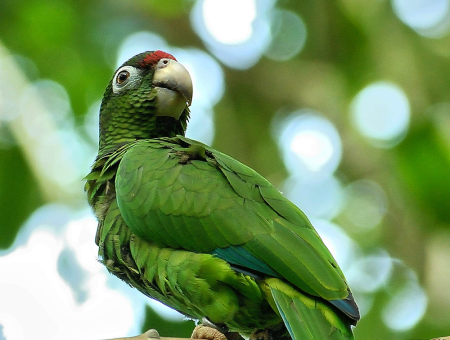
Targeted Wildlife
The initiative targeted four threatened, endemic bird species:
- Amazona vittata (Puerto Rican parrot or Cotorra puertorriqueña)
- Setophaga angelae (Elfin-woods Warbler or Reinita de bosque enano),
- Buteo platypterus brunnescens (Broad-winged Hawk or Guarguao de bosque), and
- Accipiter striatus venator (Puerto Rican Sharp-shinned Hawk or Falcón de sierra)
The success of the initiative was measured primarily based on the amount of acreage enrolled in the program, the number of conservation plans developed, the growth and survival of trees planted for habitat restoration and enhancement purposes, the improvement of habitat quality, and the increase of suitable habitat for the four targeted species.
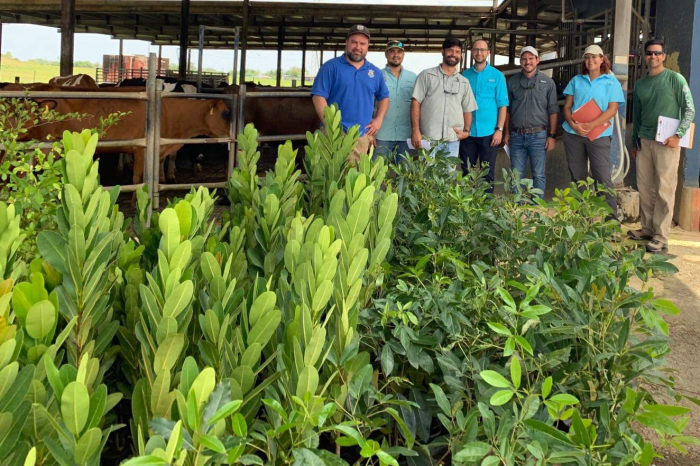
NRCS and conservation partners deliver 1,088 shade trees to Milk Money Inc. Dairy in Hatillo, PR, on August 16, 2019.
Required Land Uses
- Crop
- Forest
- Farmstead
- Pasture
- Associated Agricultural Lands
Approved Natural Resource Concerns
- Degraded Plant Condition
- Undesirable plant productivity and health
- Inadequate structure and composition
- Excessive plant pest pressure
- Wildfire hazard, excessive biomass accumulation
- Insufficient Water
- Inefficient moisture management
- Water Quality Degradation
- Excess nutrients in surface and ground waters
- Excessive sediment in surface waters
- Elevated water temperature
- Inadequate Fish & Wildlife Habitat
- Inadequate habitat - food
- Inadequate habitat - cover / shelter
- Inadequate habitat - water
- Inadequate habitat - habitat continuity (space)
Additional Information
Shade Coffee for the Caribbean
NRCS Caribbean is helping Puerto Rico’s farmers to convert their sun-grown coffee plantations to shade-grown coffee to protect, enhance and conserve soil, water and wildlife habitat. Promoting shade-grown coffee is a partnership between NRCS, the U.S. Fish and Wildlife Service (USFWS) and local NGOs
Learn More


